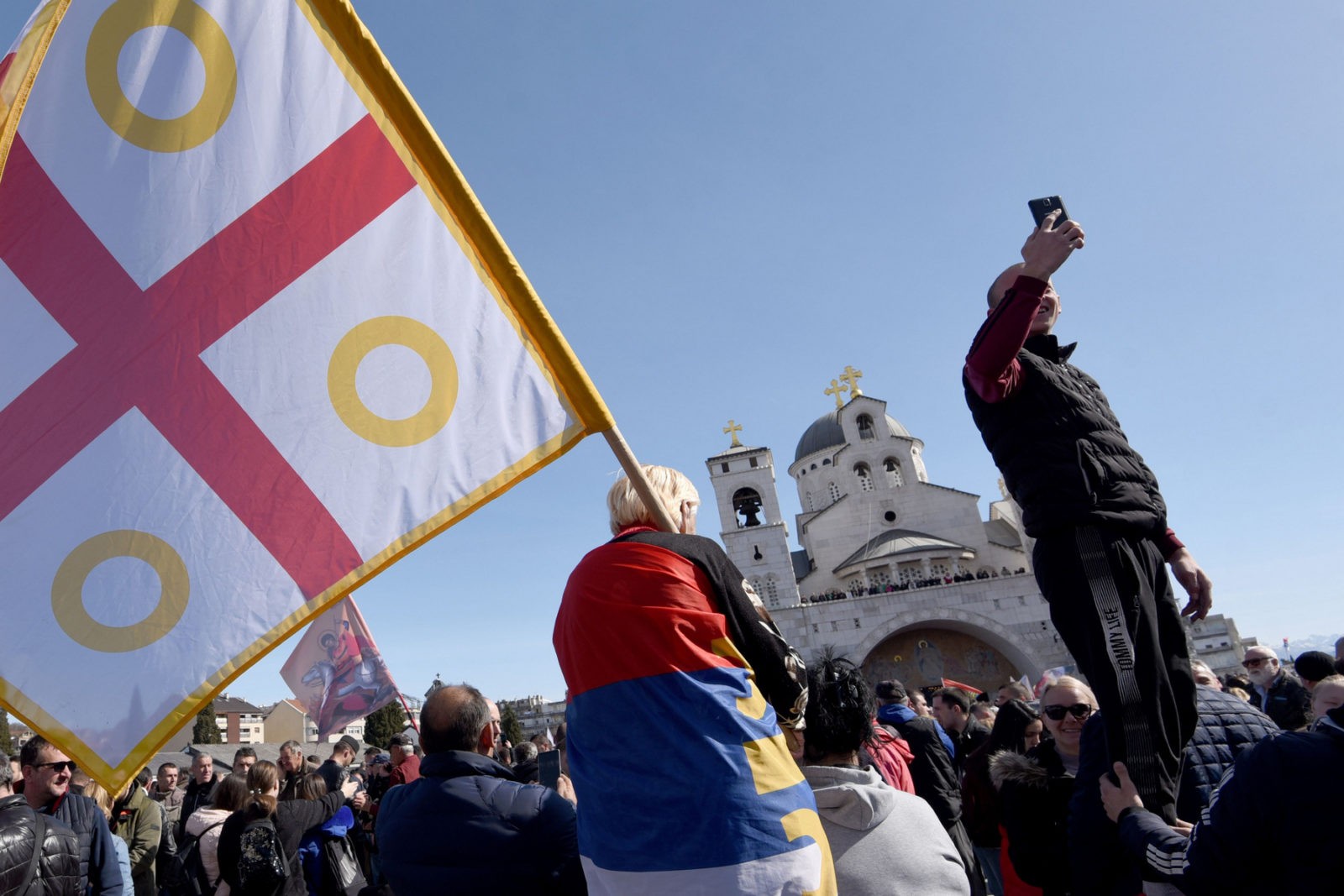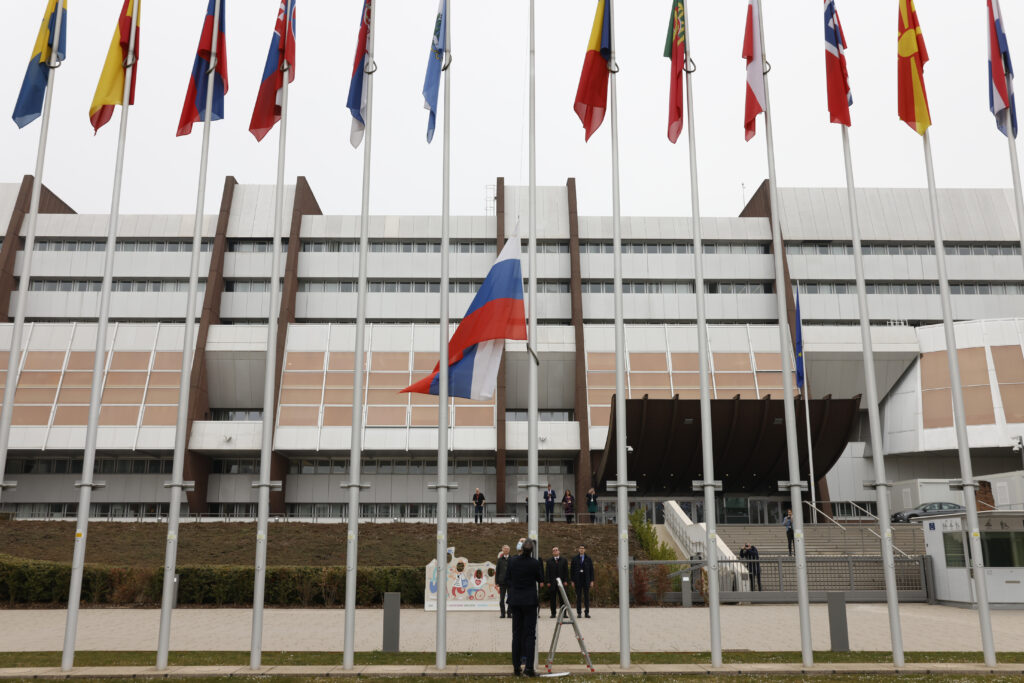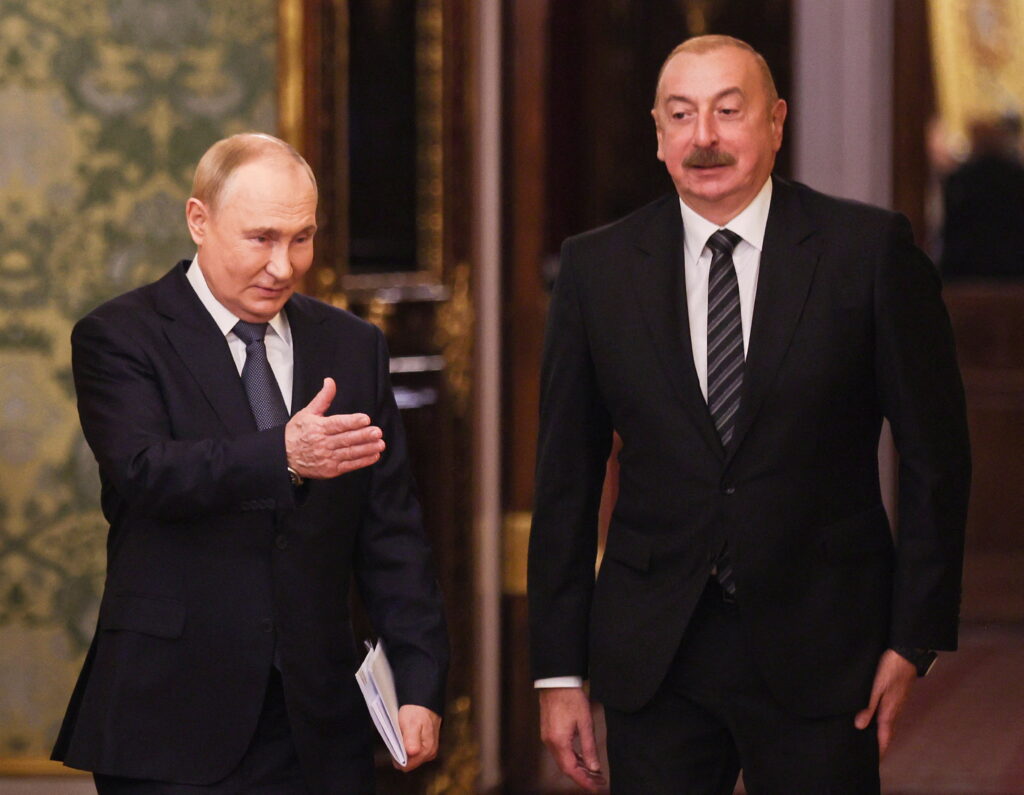Protests and disputes in Montenegro over a new law on religion have raged for two months, and show no sign of stopping. The new law paves the way for the state to appropriate most of the Serbian Orthodox Church’s property in the country. In contrast to outraged officials in Belgrade, the Russian authorities have refrained from getting involved publicly in this debate. However, the Russian Orthodox Church, state media, and media linked to the church have been waging a full-throated campaign to discredit both the law itself and the regime of President Milo Djukanović.
This media campaign is reminiscent of others conducted by Russian actors towards Montenegro, such as during the 2016 parliamentary elections and on the eve of Montenegro’s entry into NATO. This campaign, like those, involves familiar politicians and «analysts» on the Balkans who are closely associated with the Russian authorities and their propaganda machine. Their methods and arguments have not changed significantly. The only difference is that this time the Russian Orthodox Church has spearheaded the campaign and set the tone. It has strongly supported the Serbian Orthodox Church’s condemnation of the law, and drew parallels between Montenegro and the church schism over Ukraine.
The Montenegrin law «On the Freedom of Religion» allows for the seizure and transfer to state ownership of property and land used by religious communities if they belonged to the state before December 1, 1918, or if there are no documents proving their registration as church property (as is frequently the case for most ancient shrines and holy places.)
For its part, the Russian government has only officially reacted to this situation in Montenegro on one occasion. In a statement at the end of December, the Russian Foreign Ministry focused on «the possibility of seizing 650 religious sites from the Serbian Orthodox Church with the prospect of their transferral to the schismatic and unrecognised ‘Montenegrin Orthodox Church,’» as well as the attempt to completely expunge the Serbian Orthodox Church from Montenegro. According to Moscow, this attempt has given the church question in Montenegro a new international significance. At the same time, Russian diplomacy is quite visibly moving away from secular rhetoric, now explicitly pointing to «the importance of maintaining the centuries-old foundations, unity, and solidarity of the Orthodox world.»
Meanwhile, Moscow did not say anything about the European Court of Human Rights’ (ECHR) refusal to ban Montenegro from applying the new law until a decision was reached by the country’s Constitutional Court or unless an agreement was brokered with the Serbian Orthodox Church. It seems as though the leading international role on the latter issue has been assumed by the Russian Orthodox Church. So in late January, Metropolitan Hilarion of Volokolamsk, the head of the Moscow Patriarchate’s Department for External Church Relations, met with the Montenegrin ambassador to Russia Ramiz Bašić. On February 17−18, Hilarion then traveled to Belgrade, where he spoke not only with senior figures in the Serbian Orthodox Church, but also met with Serbia’s Minister of Innovation and Technological Development Nenad Popović. Although Popović’s position is the furthest removed from church issues, he is the preferred point of contact for visitors from Moscow given his conveniently pro-Russian positions.
During his meeting with Hilarion, Popović described the events in Montenegro as «part of the old scenario to weaken the Serbian and Russian peoples: the only peoples to have preserved the independence, freedom, and strength of the Orthodox faith.» At the same time, the minister tied the church issue to the activities of NATO, which supposedly aims to establish complete control over the Balkans.
The minister and businessman Nenad Popović owns the company ABS Electro, which unites several Russian electrical and engineering firms. As mentioned earlier, Popović is a consistent and stalwart supporter of the «Russian World.» In 2014, he founded the pro-Kremlin Serbian People’s Party. This national-conservative movement opposes Serbia’s EU and NATO integration and advocates its membership in the Eurasian Economic Union (EAEU) instead. The Serbian People’s Party has even managed to enter parliament, and contested the 2016 elections as part of a coalition led by the ruling Serbian Progressive Party of President Aleksandar Vučić.
Popović received the Order of Friendship in Moscow in 2010 in recognition for his great contributions to economic and cultural cooperation between Russia and Serbia. He has also received numerous religious awards and participates in all events in Belgrade linked to the Russian Orthodox Church.
The «old scenario,» according to which the West is undermining the Russian and Serbian peoples, has not only been raised by Popović.
Since the end of December, the situation in Montenegro has become an important topic in the Russian media landscape. It is discussed and written about in state and conservative, Orthodox mass media outlets as well as Russian publications with a Balkan or Balkan-watching readership (such as Sputnik and Balkanist). The most widely cited interviewees are Metropolitan Amfilohija, head of the Serbian Orthodox Church in Montenegro, and secular critics of the Djukanović regime who try to present the Montenegrin leader as utterly odious and openly call for his resignation.
A small glimpse at the headlines reveals the dramatic tone many Russian publications take in describing these events: «Atheist president pushes Montenegro towards a Ukrainian-style schism,» «The last vestiges of unity between the southern Slavs are being destroyed,» «An open war against Orthodoxy around the world,» «The USA uses the mafia to wipe out canonical Orthodoxy in Montenegro.»
These strident denunciations are often accompanied by inaccurate or unverifiable information, such as the statement made by the Russian state media network TASS that Djukanović’s supporters were handed out «€ 20 each» for taking part in a rally. And while emotional predictions, including even bloodshed, have not come to pass, they remain an integral part of a campaign whose aim is to whip up uncertainty and fear.
The author of these fanciful and gloomy forecasts is Igor Damjanović, a pro-Russian Montenegrin columnist who is an important commentator for Russia’s state- and church-aligned media. TASS describes Damjanović as a «political scientist,» though it is not possible to find any open source information about his education or qualifications in the field — unlike, however, his photographs posing with the Head of Chechnya Ramzan Kadyrov or the Russian Foreign Ministry’s press secretary Maria Zakharova.
Damjanović made his debut in Russian-language media in 2014 with a forceful article entitled «Crimea is not Kosovo,» which began with a reference to the «terror of Kyiv’s fascist minority.» He was later introduced in various capacities, as the coordinator of an anti-NATO project, an analyst, and an independent journalist. He played an active role in the campaign against Djukanović before the 2016 elections, which in Russia was most prominently conducted by Tsargrad, an ultra-conservative television channel associated with the Orthodox millionaire Konstantin Malofeev. In addition, Damjanović is an organiser of the «Immortal Regiment» marches in Montenegro, for which the Russian government even presented him with a letter of thanks for furthering patriotic education among the youth. Nevertheless, in the Balkans these parades are often regarded more as an instrument of Kremlin propaganda, alongside events held by the Night Wolves, a pro-Russian Orthodox biker group, or the Balkan Cossack Army. A big admirer of these initiatives is Boro Djukić, who served as Russia’s honorary consul in Montenegro from 2014 to 2018. Djukić is an important fixture in Russian state media reports from the Balkans and helps organise meetings with Metropolitan Amfilohija. Djukić also likes to be photographed in costumes bearing Russian symbols and brandishing Russian-made weapons; he is acquainted with Alexander Zaldostanov (known as «Surgeon»), the leader of the Night Wolves, and has presented awards to dubious Balkan «Cossacks.»
It was presumably Djukić who stood behind the creation of the pro-Kremlin conservative party «True Montenegro» in 2018, which has serious support from the Russian media. Like Damjanović, in recent years Marko Milačić has become a go-to interviewee for Russian state media reports on the situation in Montenegro. Both men provide clear support for the ongoing protests on their social media pages. In Moscow, Milačić seems to be considered a promising political leader. For example, he was among the politicians invited to dine with Vladimir Putin during the Russian president’s visit to Belgrade in 2019. He is acquainted with senior members of Russia’s ruling party United Russia, such as Sergey Zheleznyak and Pyotr Tolstoy. Zheleznyak, with Milačić’s assistance, also tried to get the leaders of the opposition Democratic Party off the hook after they became implicated in the 2016 coup attempt which, according to the Montenegrin prosecutor’s office, was prepared with the associate of the Russian security services.
Russian media also take great pains to ensure that the positions of the convicted Democratic Front leaders regarding the church law are publicly known, furthering their influence in the protest movement. Leaders of the opposition conservative coalition never miss an opportunity to emphasise Russia’s perceived positive role in the Balkans, as the defender of the Serbs and their holy places. They use the current protests as a stage for amplifying anti-NATO propaganda, accusing the alliance of occupying Montenegro and turning the country into a colony. The activity of these pro-Kremlin actors against the backdrop of mass protests has been characterised by some experts on the Balkans as a case of Russian «hybrid operations.»
It is not yet clear how the dispute between the Montenegrin authorities and the Serbian Orthodox Church will be settled. What is clear is that for Russia, it has become an opportunity to launch yet another anti-western and anti-Ukrainian propaganda offensive.










